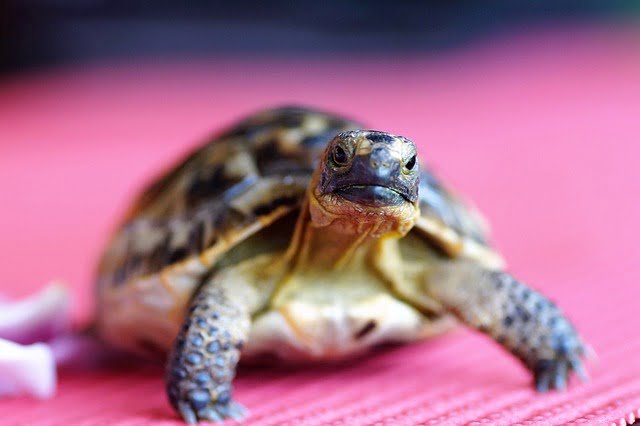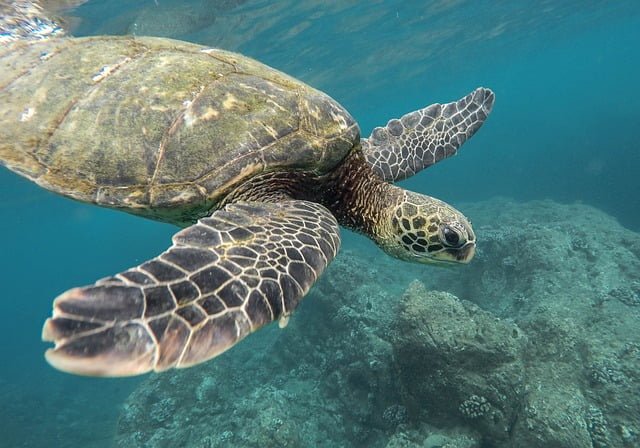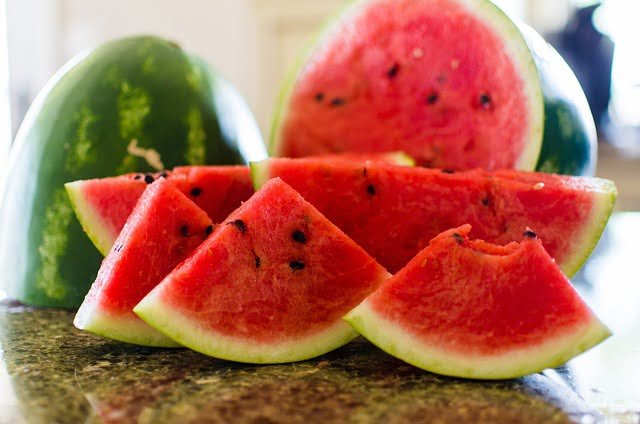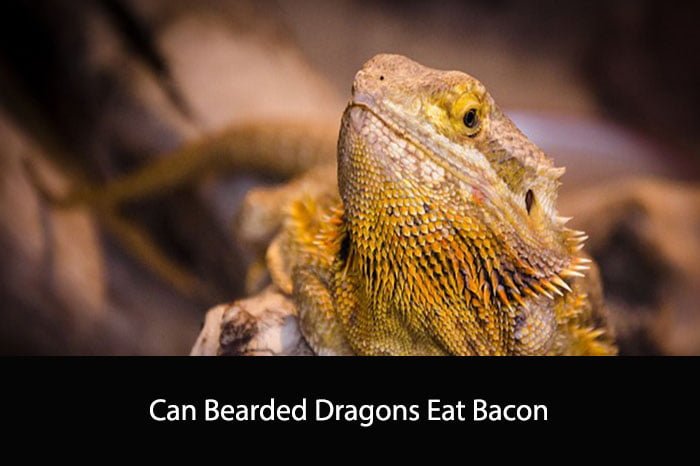Tortoises are known for their slow movements and their love for leafy greens, but can they eat watermelon? This question has been asked by many tortoise owners and enthusiasts, and the answer may surprise you.
Watermelons are a juicy and refreshing fruit that many humans enjoy during the summer months. However, when it comes to feeding watermelon to tortoises, there are some things to consider. While tortoises can eat certain fruits in moderation, not all fruits are safe for them to consume.
In this article, we will explore whether tortoises can eat watermelon, what benefits it may provide, and any potential risks involved. By the end of this article, you will have a better understanding of whether or not watermelon should be a part of your tortoise’s diet.

What are Tortoises?
Tortoises are reptiles that belong to the family Testudinidae. They are characterized by their hard, bony shells that protect their bodies. Tortoises are found all over the world, except for Antarctica, and they come in various shapes and sizes. Some species of tortoises can live for over 100 years.
Tortoises are herbivores, which means that they only eat plants. They have a slow metabolism and can go for long periods without food or water. Tortoises are ectothermic, which means that they rely on external sources of heat to regulate their body temperature. They bask in the sun to warm themselves up and retreat into the shade to cool off.
Tortoises are often kept as pets and can make great companions. However, they require a lot of care and attention. Tortoises need a large enclosure with plenty of space to move around. They also need a varied diet that includes a mix of vegetables, fruits, and leafy greens. It’s important to provide them with fresh water at all times and to keep their enclosure clean and hygienic.
Understanding Tortoise Diet
Tortoises are herbivores, which means they eat only plant-based food. They have a unique digestive system that allows them to break down tough plant material. Understanding what tortoises eat is essential to ensure their health and longevity.
In the wild, tortoises have access to a variety of plants, including grasses, weeds, flowers, and fruits. However, in captivity, their diet needs to be carefully monitored to prevent nutritional deficiencies.
A healthy tortoise diet should consist of the following:
- High fiber content: Tortoises require a high-fiber diet to maintain healthy digestion. Fiber also helps prevent the development of digestive problems like constipation.
- Low protein content: Tortoises do not require a lot of protein in their diet. Too much protein can cause liver and kidney problems.
- Variety of plants: Tortoises need a variety of plants to ensure they are getting all the necessary nutrients. A diet consisting of only one type of plant can lead to nutritional deficiencies.
- Calcium-rich foods: Tortoises require a lot of calcium to maintain healthy bones and shells. Foods like kale, collard greens, and dandelion greens are excellent sources of calcium.
It is important to note that not all plants are safe for tortoises to eat. Some plants, like avocado and rhubarb, are toxic and can cause serious health problems. It is essential to research which plants are safe for tortoises to eat and which ones to avoid.
In conclusion, understanding tortoise diet is crucial to ensure their health and longevity. A healthy diet should consist of high-fiber, low-protein, and calcium-rich foods, with a variety of plants to ensure all necessary nutrients are being met. It is also essential to research which plants are safe for tortoises to eat to prevent any health problems.
The Role of Fruits in Tortoise Diet
Watermelon in Tortoise Diet
Tortoises are herbivores, meaning they primarily consume plant-based foods. Fruits are an essential part of a tortoise’s diet as they provide a good source of vitamins, minerals, and fiber. However, not all fruits are ideal for tortoises, and some may even be harmful to their health.
Watermelon is a popular fruit that many tortoise owners wonder about. While it is safe for tortoises to eat watermelon, it should only be given in moderation. Watermelon is high in sugar and water content, which can cause digestive issues if consumed in large amounts. It is best to offer watermelon as an occasional treat rather than a regular part of their diet.
When feeding watermelon to tortoises, it is important to remove the seeds and rind. The seeds can cause digestive problems, and the rind is tough and difficult for tortoises to digest. It is also recommended to cut the watermelon into small, bite-sized pieces to make it easier for the tortoise to eat.
In conclusion, fruits play an important role in a tortoise’s diet, and watermelon can be a safe and healthy treat when given in moderation. However, it is crucial to remove the seeds and rind and to offer it in small pieces to prevent digestive issues.
Benefits of Watermelon for Tortoises
Watermelon is a delicious fruit that is high in vitamins, minerals, and antioxidants. It is also a great source of hydration for tortoises. Here are some benefits of watermelon for tortoises:
1. Hydration
Tortoises need to stay hydrated to maintain good health. Watermelon is a great source of hydration because it is 92% water. Feeding your tortoise watermelon can help prevent dehydration, especially during hot weather.
2. Vitamins and Minerals
Watermelon is high in vitamins A, B6, and C, which are essential for the healthy growth and development of tortoises. It also contains potassium, which helps regulate blood pressure and supports healthy heart function.
3. Antioxidants
Watermelon is rich in antioxidants, which help protect your tortoise’s cells from damage caused by free radicals. This can help reduce the risk of diseases and promote overall health.
4. Low in Calories
Watermelon is a low-calorie fruit, making it a great snack for tortoises who need to maintain a healthy weight. It is also low in fat and cholesterol, making it a healthy choice for your pet.
Overall, watermelon is a great addition to your tortoise’s diet. However, it should be fed in moderation as too much can cause digestive issues. Always consult with a veterinarian before making any changes to your pet’s diet.
Potential Risks of Feeding Watermelon to Tortoises
While watermelon can be a healthy and refreshing treat for humans, it may not be the best choice for tortoises. Here are some potential risks associated with feeding watermelon to tortoises:
High Sugar Content
Watermelon is a fruit that is naturally high in sugar. While this may not be a concern for humans, it can be problematic for tortoises. Feeding them too much watermelon can lead to weight gain, diabetes, and other health problems.
Digestive Issues
Tortoises have a delicate digestive system, and feeding them foods that are high in sugar or fiber can cause digestive issues. Watermelon can be particularly problematic because of its high water content. Feeding them too much watermelon can lead to diarrhea and other digestive problems.
Pesticides and Herbicides
Watermelon is often treated with pesticides and herbicides to protect it from pests and weeds. These chemicals can be harmful to tortoises, especially if they are consumed in large quantities. It is important to wash watermelon thoroughly before feeding it to your tortoise to remove any traces of these chemicals.
Choking Hazard
Watermelon contains small seeds that can be a choking hazard for tortoises. It is important to remove these seeds before feeding watermelon to your tortoise to prevent choking.
Overall, while watermelon can be a healthy and refreshing treat for humans, it may not be the best choice for tortoises. It is important to consult with a veterinarian before introducing any new foods to your tortoise’s diet to ensure that they are safe and healthy.

How to Feed Watermelon to Tortoises
Feeding watermelon to tortoises can be a refreshing treat for them during hot summer days. However, it is important to feed watermelon in moderation and in the correct way to ensure the health and well-being of your tortoise.
Here are some tips on how to feed watermelon to tortoises:
- Cut the watermelon into small, bite-sized pieces. This will make it easier for the tortoise to eat and reduce the risk of choking.
- Remove the seeds from the watermelon. The seeds can be a choking hazard and can also cause digestive problems for the tortoise.
- Feed watermelon as a treat, not as a regular part of the tortoise’s diet. Watermelon is high in sugar and can cause diarrhea if fed in excess.
- Offer watermelon in addition to a balanced diet of leafy greens, vegetables, and fruits that are appropriate for your tortoise’s species.
- Always provide fresh, clean water for your tortoise to drink.
By following these tips, you can safely and responsibly feed watermelon to your tortoise as a tasty treat.
Alternatives to Watermelon for Tortoises
While watermelon can be a tasty treat for tortoises, it should not be the only food they eat. Here are some alternative foods that tortoise owners can offer their pets:
1. Dark leafy greens
Dark leafy greens such as kale, collard greens, and dandelion greens are a great source of calcium and other nutrients that tortoises need. These greens should make up the bulk of a tortoise’s diet, with other foods offered as treats.
2. Other fruits
Tortoises can also enjoy other fruits such as strawberries, raspberries, and blueberries. These fruits are high in fiber and can provide a tasty snack for your pet.
3. Vegetables
Vegetables such as carrots, squash, and sweet potatoes can also be offered to tortoises. These foods are high in vitamins and minerals and can be a great addition to a tortoise’s diet.
4. Commercial tortoise food
There are also commercial tortoise foods available that can provide a balanced diet for your pet. These foods are formulated to meet the specific nutritional needs of tortoises and can be a convenient option for busy tortoise owners.
It is important to remember that while treats like watermelon can be enjoyed by tortoises, they should not make up the majority of their diet. A balanced diet that includes a variety of foods is essential for the health and well-being of your pet tortoise.

Frequently Asked Questions
What fruits are safe for tortoises to eat?
Tortoises can eat a variety of fruits as part of their diet. Some safe fruits for tortoises to eat include strawberries, raspberries, blueberries, and apples. It’s important to avoid feeding them fruits with high sugar content, such as grapes and bananas, as these can cause health issues.
Can Russian tortoises eat watermelon rind?
Russian tortoises can eat watermelon, including the rind. However, it’s important to ensure that the rind is properly washed and cut into small pieces to prevent choking hazards.
Can marginated tortoises eat watermelon?
Marginated tortoises can eat watermelon, but it should be given in moderation. Too much watermelon can cause diarrhea and other digestive problems.
Can leopard tortoises eat watermelon?
Leopard tortoises can eat watermelon, but it should be given in moderation. It’s important to remove any seeds or rind to prevent choking hazards.
Can red foot tortoises eat watermelon?
Red foot tortoises can eat watermelon, but it should be given in moderation. It’s important to remove any seeds or rind to prevent choking hazards.
How much watermelon can a turtle eat?
Turtles should only be given small amounts of watermelon as a treat, as too much can cause digestive problems. A good rule of thumb is to give them a piece of watermelon about the size of their head once a week.





